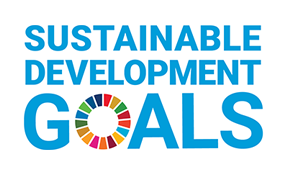At a GlanceReport 5—Carbon Pricing—Environment and Climate Change Canada
Why we did this audit
- This audit is important because carbon pricing is broadly recognized as one of the most efficient policy approaches to reducing greenhouse gas emissions. Emission reductions therefore depend strongly on ensuring that the pan-Canadian approach to carbon pricing is implemented effectively—which in turn requires that it be applied broadly and promptly, and becomes increasingly stringent. Transparent implementation helps to demonstrate what measures are most effective over time, guiding future adjustments. Finally, fairness helps provinces, territories, and Canadians across the country appreciate that they are not being disproportionately burdened by carbon pricing.
- Weak or non-existent carbon pricing systems in some provinces or territories could contribute to significant harmful effects on the environment, on human health and safety, and on economic prosperity. Establishing minimum national standards for pricing carbon pollution is of concern for Canada as whole.
Our findings
- Weak requirements for large-emitter programs reduced the effectiveness of the carbon price.
- Environment and Climate Change Canada ensured that all jurisdictions had carbon pricing in place by 2019. Although there were shortcomings in the initial criteria, the department strengthened them in August 2021.
- Some groups remained disproportionately burdened by carbon pricing.
Key facts and figures
- In 2019, the oil and gas industry amounted to 26% of Canada’s emissions, while heavy industry (such as cement and paper) amounted to 11%.
- Environment and Climate Change Canada did not establish criteria in the federal benchmark that would require jurisdictions to assess and identify measures to mitigate the disproportionate burden of carbon pricing on vulnerable groups.
- Public information needed to compare provincial or territorial systems against the benchmark criteria was limited.
Our recommendations
- Environment and Climate Change Canada should work with provinces and territories to determine an approach to minimizing domestic competitiveness risks while improving effectiveness. This work should:
- assess setting minimum performance standards
- assess aligning average costs
- engage an expert to independently assess risks to effectiveness and domestic competitiveness from federal, provincial, and territorial pricing systems
- To address the disproportionate burden that carbon pricing may have on certain groups and Indigenous peoples, Environment and Climate Change Canada should work with provinces and territories to
- assess the burden of carbon pricing systems on certain groups, including Indigenous people
- report publicly on measures implemented in jurisdictions to mitigate the burden of carbon pricing on these groups


In 2015, Canada committed to achieving the United Nations’ 2030 Agenda for Sustainable Development. Goal 13 (climate action) calls for countries to take urgent action to combat climate change and its effects. The strengthened 2020 federal climate plan, A Healthy Environment and a Healthy Economy, included a commitment to concrete actions to advance the 2030 Agenda. As a measure to reduce emissions, carbon pricing contributes to Goal 13.
Visit our Sustainable Development page to learn more about sustainable development and the Office of the Auditor General of CanadaOAG.
Related information
| Entities | |
|---|---|
| Completion date | 11 March 2022 |
| Tabling date | 26 April 2022 |
| Related audits |
|